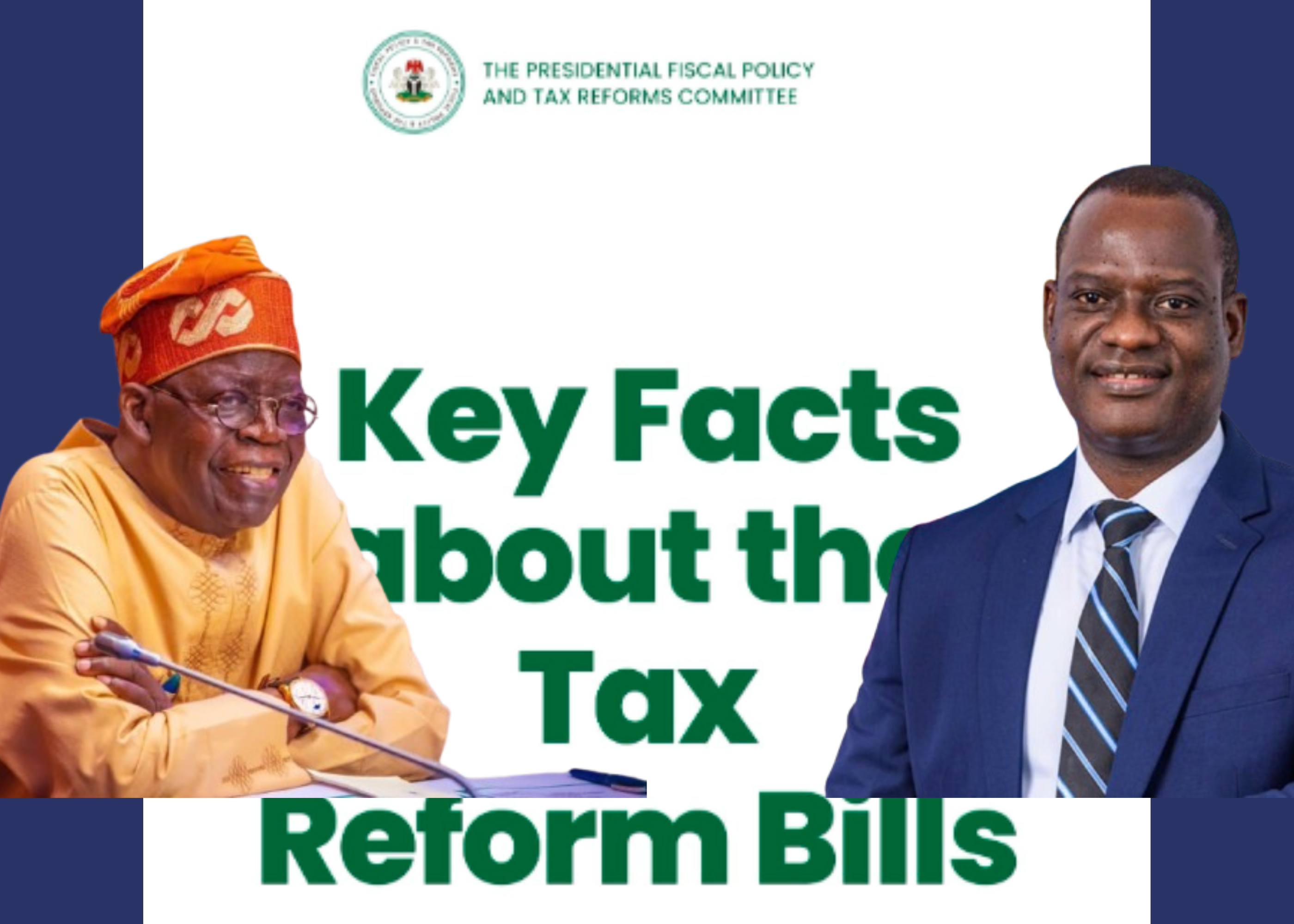News in brief:
– Tinubu’s tax reform bill aims to simplify the tax system, reduce burdens on businesses, and ensure fairer revenue distribution.
– It can benefit agriculture stakeholders through increased rural investment and exemptions for low-income farmers.
On the topic of governance, the tax reform bills proposed by the Presidential Committee on Fiscal Policy and Tax Reforms have been the most talked about in recent days. Led by Taiwo Oyedele, the team’s objectives include:
- Streamlining Tax Administration: It aims to simplify Nigeria’s tax structure to create a more conducive business environment.
- Reducing Business Tax Burden: It wants to address the overburdening of businesses with multiple taxes, which complicate operations, deter investments, and harm economic competitiveness.
- Enhancing Economic Growth: It seeks to make Nigeria attractive for investments, prevent businesses from relocating, and promote overall economic prosperity.
- Fixing the Economy for Shared Prosperity: It aims to address issues such as the underperformance of the economy, widespread poverty, and the lack of inclusive and sustainable growth.
- Addressing Fiscal System Issues: It intends to resolve inefficiencies in the fiscal and tax system, which Oyedele describes as a “knee on the neck of our economic prosperity.”
From the few details shared by Oyedele and the office of President Bola Tinubu, the bill is not focused on raising more money but on restructuring the economy so that growth and prosperity naturally lead to tax revenues.
One key change proposed in this bill is the model of state remittance. Originally, Value-Added Tax (VAT) was attributed to the state where the company’s headquarters or tax remittance office is located. What this means is that large corporations with headquarters in major cities like Lagos, Abuja, or Port Harcourt remit VAT collected across the country to these locations.
However, the adjustment will see VAT attributed to the state where the taxable goods or services are supplied and consumed. Companies will report VAT by detailing the derivation of taxable supplies based on their location, as mandated in Section 22(12) of the bill.
Other changes will include the exemption for low-income earners (individuals earning about ₦83,000 per month or ₦1 million annually) from paying taxes. For businesses, the benchmark is ₦50 million or less.
The reforms will also rewrite outdated tax laws, including those inherited from colonial times, to make them relevant to Nigeria’s current economic context.
In addition, Section 59(3) of the Nigeria Tax Bill proposes consolidating certain earmarked taxes imposed on companies into a single tax. This tax will be shared with key agencies as beneficiaries in a phased manner until 2030.
Agencies such as NASENI, TETFUND, and NITDA will have their funding streamlined. These agencies will continue to receive funding through budgetary allocations and consolidated tax revenue, eliminating the need for special or separate taxes on businesses.
How Tinubu’s tax reform policy could affect agriculture
Simplifying the tax system and consolidating multiple taxes into a single levy could reduce the tax compliance burden for agricultural businesses, which often face numerous local and federal taxes. It could potentially allow agricultural enterprises to allocate more resources to production and expansion.
By fostering a more conducive environment for businesses and investments, the reforms can attract more private-sector participation in agriculture. Easier tax systems may encourage mechanisation and the adoption of modern farming technologies, boosting productivity.
Meanwhile, the new model of attributing VAT to the state of consumption could benefit rural, agriculture-heavy states. These states could see increased revenue if the majority of agricultural goods are consumed locally. This revenue can be reinvested in rural infrastructure, benefiting farmers.
Low-income farmers and agribusinesses will be exempt from taxes, which provides relief for smallholder farmers, who form the bulk of Nigeria’s agricultural workforce. The exemption can increase disposable income for rural households, improving their quality of life.
Challenges and potential concerns regarding these policies abound. For example, adapting to the new tax system might require administrative adjustments for agribusinesses, particularly those unfamiliar with modern tax reporting methods. Ensuring compliance with the location-based VAT reporting system could be challenging for those operating in remote agricultural areas.
While rural states may gain VAT revenue, states that currently rely heavily on corporate remittances (e.g., Lagos) might push for policies to make up for lost revenue, potentially affecting agricultural funding indirectly.
It remains uncertain how the consolidated taxes will benefit agricultural-specific initiatives or infrastructure. Advocacy may be needed to ensure agriculture receives adequate funding from the new system.
Then, there could be resistance to the reforms from various political and business groups that could delay implementation, affecting agricultural stakeholders relying on the changes.
Finally, the issue of implementation may arise as Nigeria is fraught with corrupt practices that may render good-on-paper policies ineffective.
Tinubu’s tax reform policy, if well-implemented, has the potential to create a more supportive environment for agriculture in Nigeria. By reducing the tax burden, simplifying compliance, and ensuring fairer revenue distribution, the reforms could lead to improved productivity, rural development, and economic sustainability in the sector. However, proactive measures will be needed to address transitional challenges and ensure that agriculture remains a priority in the new fiscal framework.



